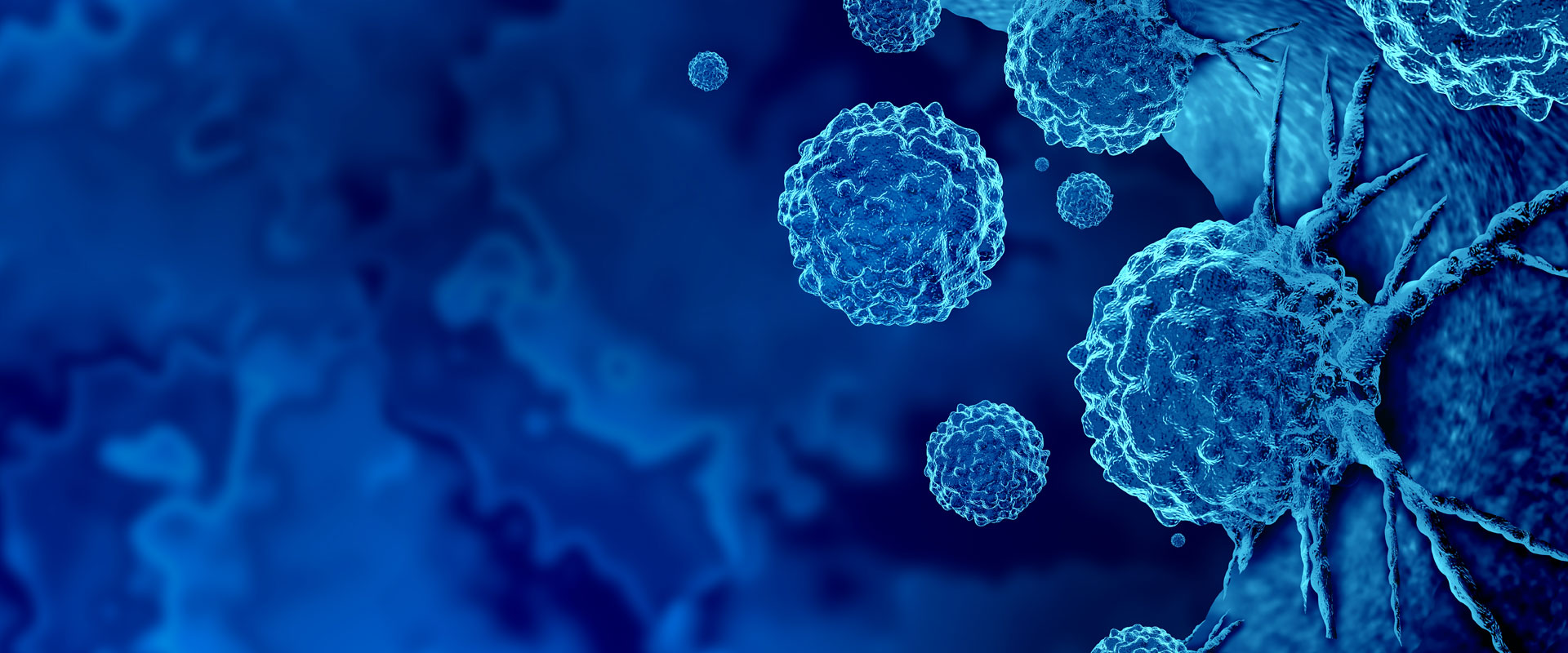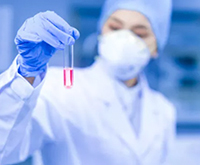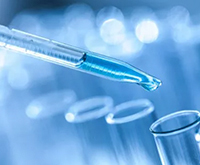Tumor Marker
A tumour marker is a chemical substance that reflects the presence of a Tumor. It is present in malignant tumour cells, not in normal adult tissues, and substances abnormally produced by malignant tumour cells or by the host's response to tumour stimulation created it.
Their presence or quantitative changes can indicate the nature of the tumour to understand the histogenesis, cell differentiation, and cell function of the tumour.
Detection of tumour markers has the following functions:
Early detection of tumour;
Tumour census and screening;
Diagnosis, differential diagnosis and staging of tumours;
Monitoring the efficacy of surgery, chemotherapy and radiotherapy for tumour patients;
Indicators of tumour recurrence;
Prognosis of tumour;
Looking for the primary foci of metastases of unknown origin.
Tumor Marker Products
CA50
| Antibody | Application |
| Mouse anti-human CA50 mAb | For immunodiagnostic: ELISA, LFA, CLIA |
| Humanized anti-human CA50 mAb |
CA125
| Antibody | Application |
| Mouse anti-human CA125 mAb | For immunodiagnostic: ELISA, LFA, CLIA |
| Humanized anti-human CA125 mAb |
CA242
| Antibody Pair | Application |
| Mouse anti-human CA242 mAb | For immunodiagnostic: ELISA, LFA, CLIA |
| Humanized anti-human CA242 mAb |
CA15-3
| Antibody | Application |
| Mouse anti-human CA15-3 mAb | For immunodiagnostic: ELISA, LFA, CLIA |
| Humanized anti-human CA15-3 mAb |
CA19-9
| Antibody | Application |
| Mouse anti-human CA19-9 mAb | For immunodiagnostic: ELISA, LFA, CLIA |
| Humanized anti-human CA19-9 mAb |
CA72-4
| Antibody | Application |
| Mouse anti-human CA72-4 mAb | For immunodiagnostic: ELISA, LFA, CLIA |
| Humanized anti-human CA72-4 mAb |
Pepsinogens I (PGI)
| Antibody | Application |
| Anti-human PGI monoclonal antibody | For immunodiagnostic: ELISA, LFA, CLIA |
| Antigen | Application |
| PGI antigen | For immunodiagnostic: ELISA, LFA, CLIA |
Human Epididymis 4 (HE4)
| Name | Application |
| Recombinant human HE4 protein (Prokaryotic HE4 full-length protein) | For immunodiagnostic: ELISA, LFA, CLIA |
Prostate-Specific Antigen (PSA)
| Antibody | Application |
| Mouse anti-human PSA mAb | For immunodiagnostic: ELISA, LFA, CLIA |
| Humanized anti-human PSA mAb | |
| Mouse anti-human free PSA mAb |
| Antigen | Application |
| Prostate-Specific Antigen (Eukaryotic expression) | For immunodiagnostic: ELISA, LFA, CLIA |
Squamous Cell Carcinoma (SCC)
| Antibody | Application |
| Mouse anti-human SCC mAb | For immunodiagnostic: ELISA, LFA, CLIA |
| Humanized anti-human SCC mAb | |
| Prokaryotic expression antigen (full length) |
| Antigen | Application |
| Prokaryotic expression antigen (full length) | For immunodiagnostic: ELISA, LFA, CLIA |
Neuron-Specific Enolase (NSE)
| Antibody | Application |
| Mouse anti-human NSE mAb | For immunodiagnostic: ELISA, LFA, CLIA |
| Antigen | Application |
| Recombinant human neuron-specific enolase (Prokaryotic NSE protein full length) | For immunodiagnostic: ELISA, LFA, CLIA |
Cytokeratin 19 Fragment (CYFRA21-1)
| Name | Application |
| Mouse anti-human CYFRA21-1 mAb | For immunodiagnostic: ELISA, LFA, CLIA |
| Humanized anti-human CYFRA21-1 mAb |
Human Progastrin-releasing Peptide (ProGRP Tumor Marker)
| Antibody | Application |
| Mouse anti-human ProGRP mAb | For immunodiagnostic: ELISA, LFA, CLIA |
| Humanized anti-human ProGRP mAb |
| Antigen | Application |
| Recombinant human proGRP 31-98 fragment (Prokaryotic expression) | For immunodiagnostic: ELISA, LFA, CLIA |
Protein Induced by Vitamin K Absence or Antagonist-II (PIVKA II Tumor Marker)
| Antibody | Application |
| Mouse anti-human PIVKA-II mAb | For immunodiagnostic: ELISA, LFA, CLIA |
| Humanized anti-human PIVKA-II mAb |
| Antigen | Application |
| Human PIVKA II protein prokaryotic expression (N-terminal fragment) | For immunodiagnostic: ELISA, LFA, CLIA |
Alpha-fetoprotein(AFP)
| Antibody | Application |
| For immunodiagnostic: ELISA, LFA, CLIA | |
Tumor Antigens
Tumor antigens generally refer to new or overexpressed antigenic substances during the occurrence and development of tumors.
The possible mechanisms for the body to produce tumor antigens are: 1) gene mutation; 2) the activation of genes that were not expressed initially during the process of cell carcinogenesis; 3) abnormalities in some aspects of the antigen synthesis process (such as abnormal glycosylation leading to the production of unique protein degradation products) ); abnormal and ectopic expression of antigens or differentiation antigens during embryonic stage; ⑤ overexpression of specific gene products, significantly signal transduction molecules; ⑥ expression of exogenous genes (such as viral genes).
Cancer Antigen
According to the specificity of cancer antigens, cancer antigens are divided into (1) Tumor-specific antigens (2) Tumor-associated antigens.
Tumor-specific antigen (TSA) is a neoantigen-specific to tumor cells or exists only in specific but not in normal cells.
Tumor-associated antigen (TAA) refers to antigens peculiar to non-tumor cells and exist in normal cells and other tissues. Still, their content is significantly increased when cells become cancerous.


















